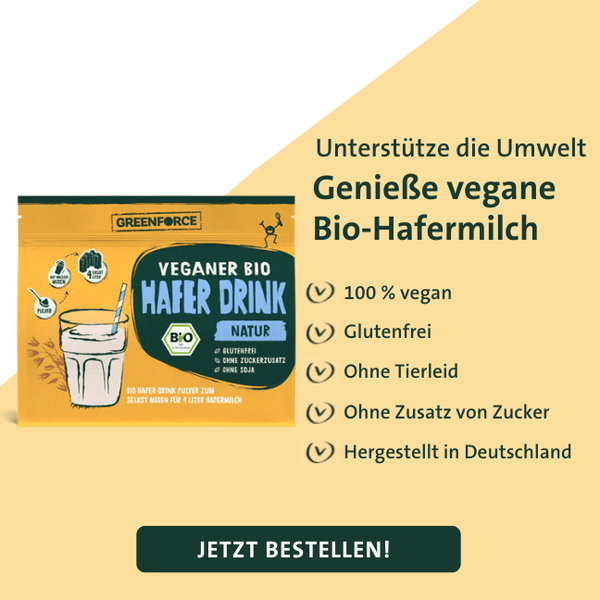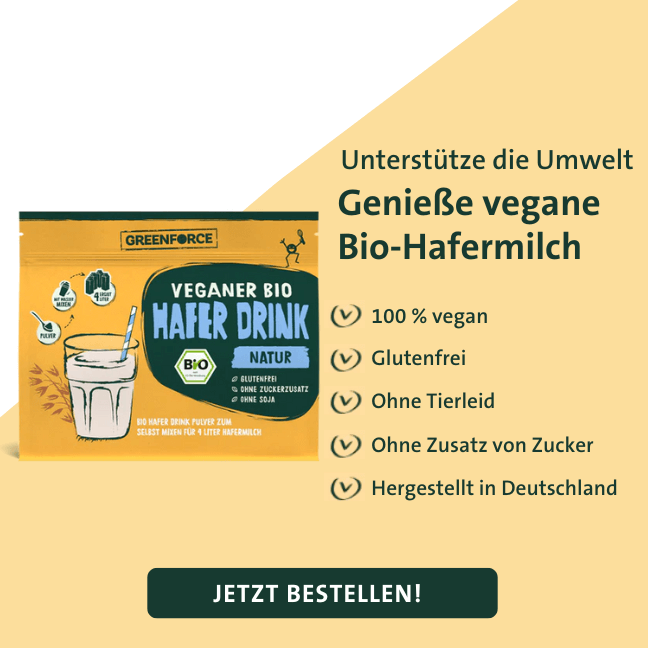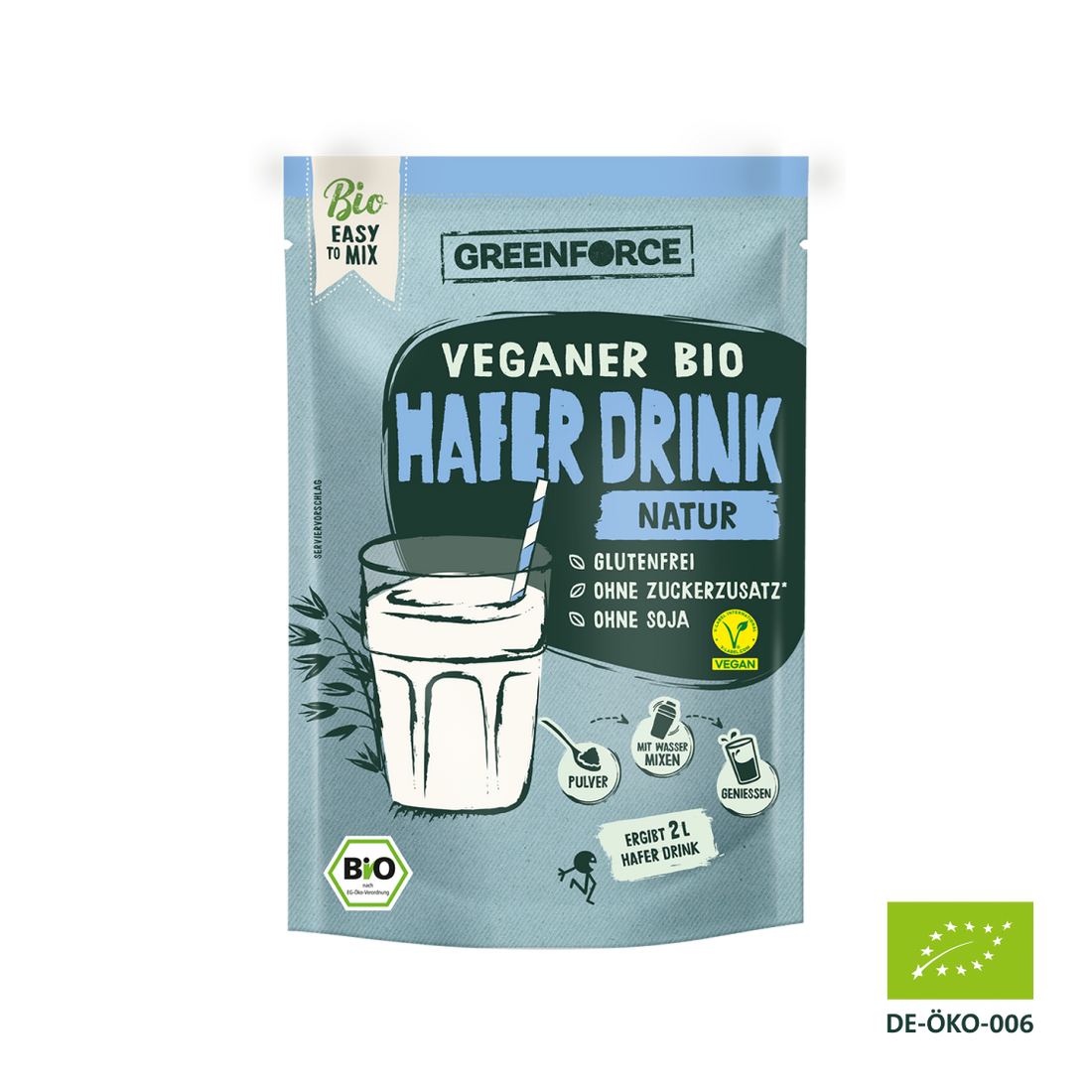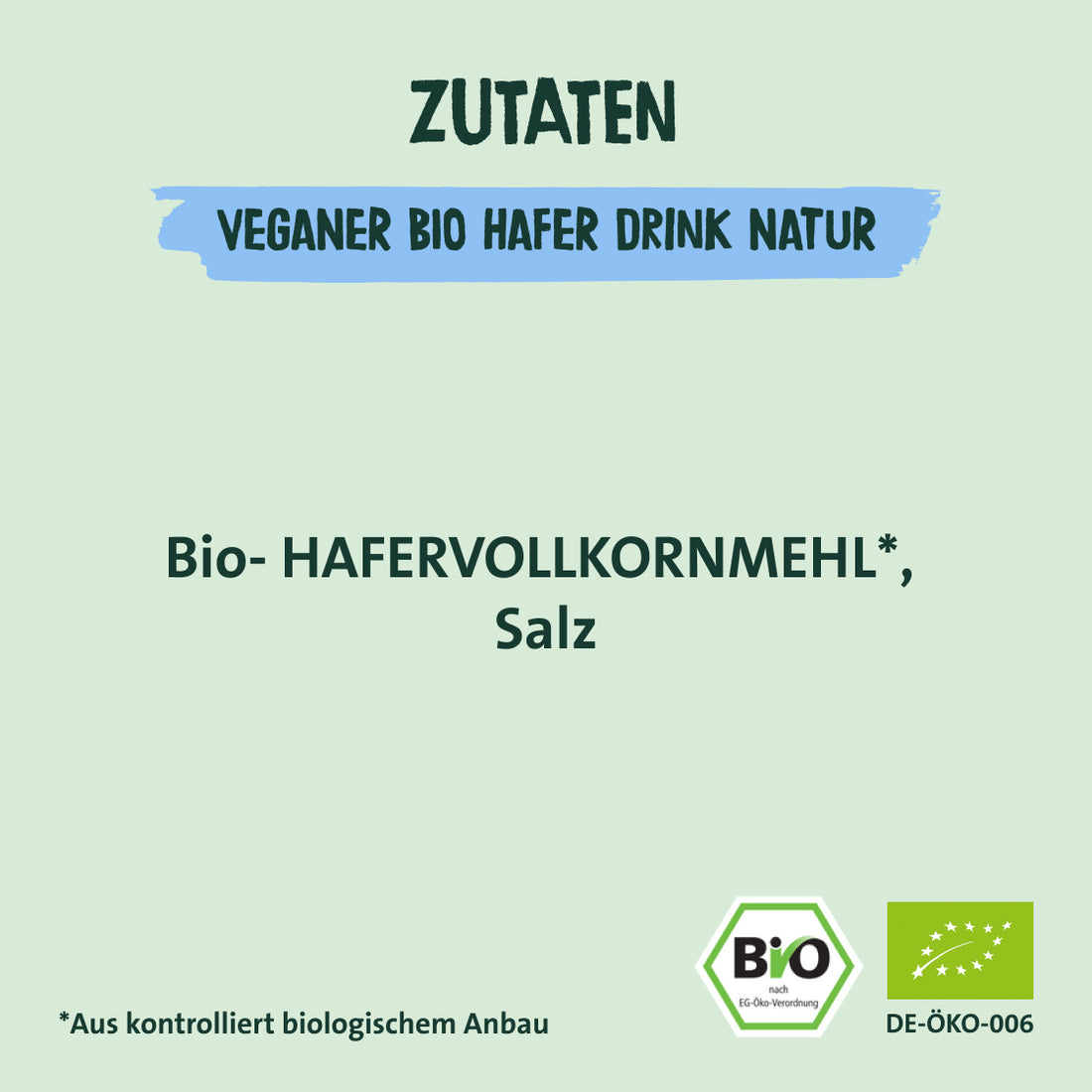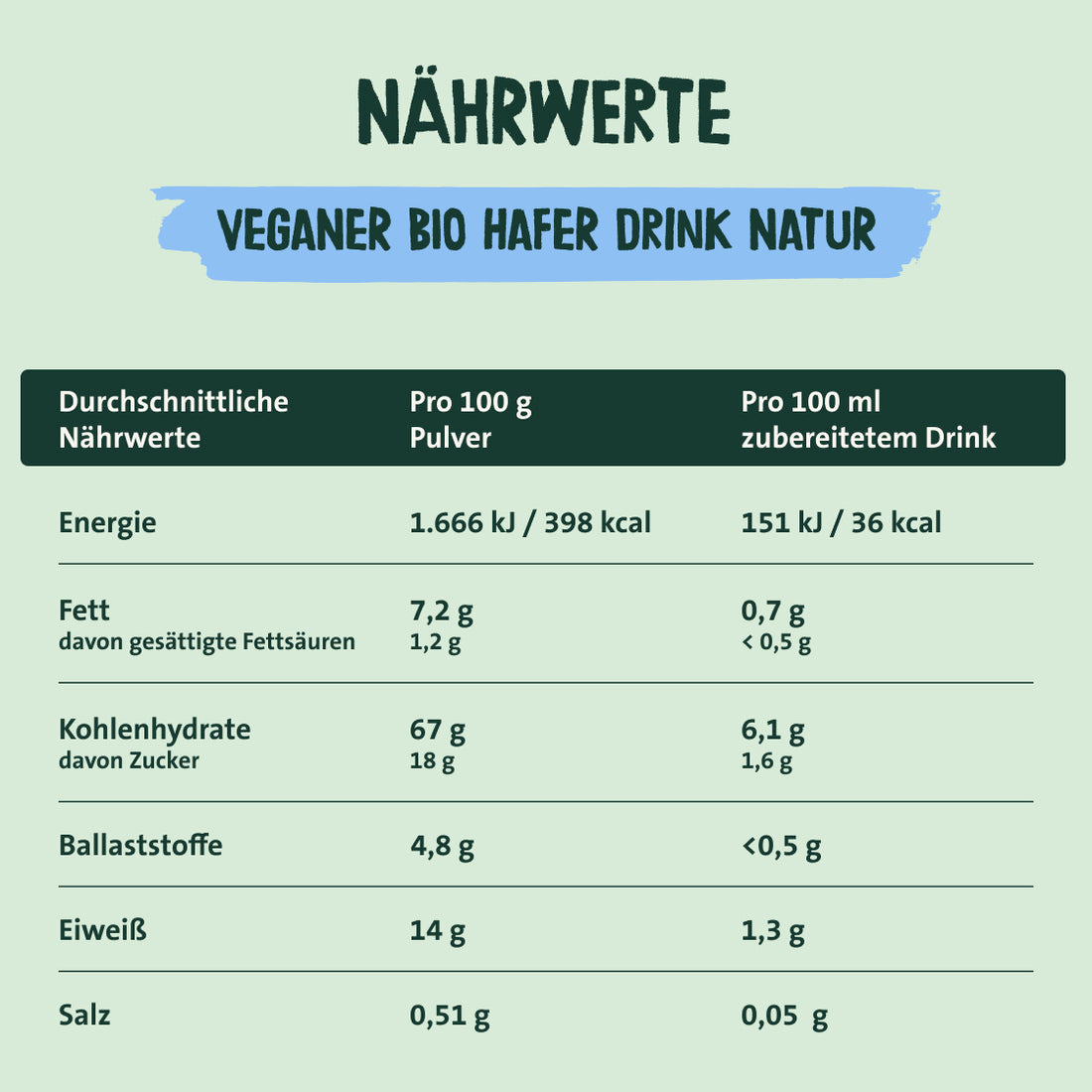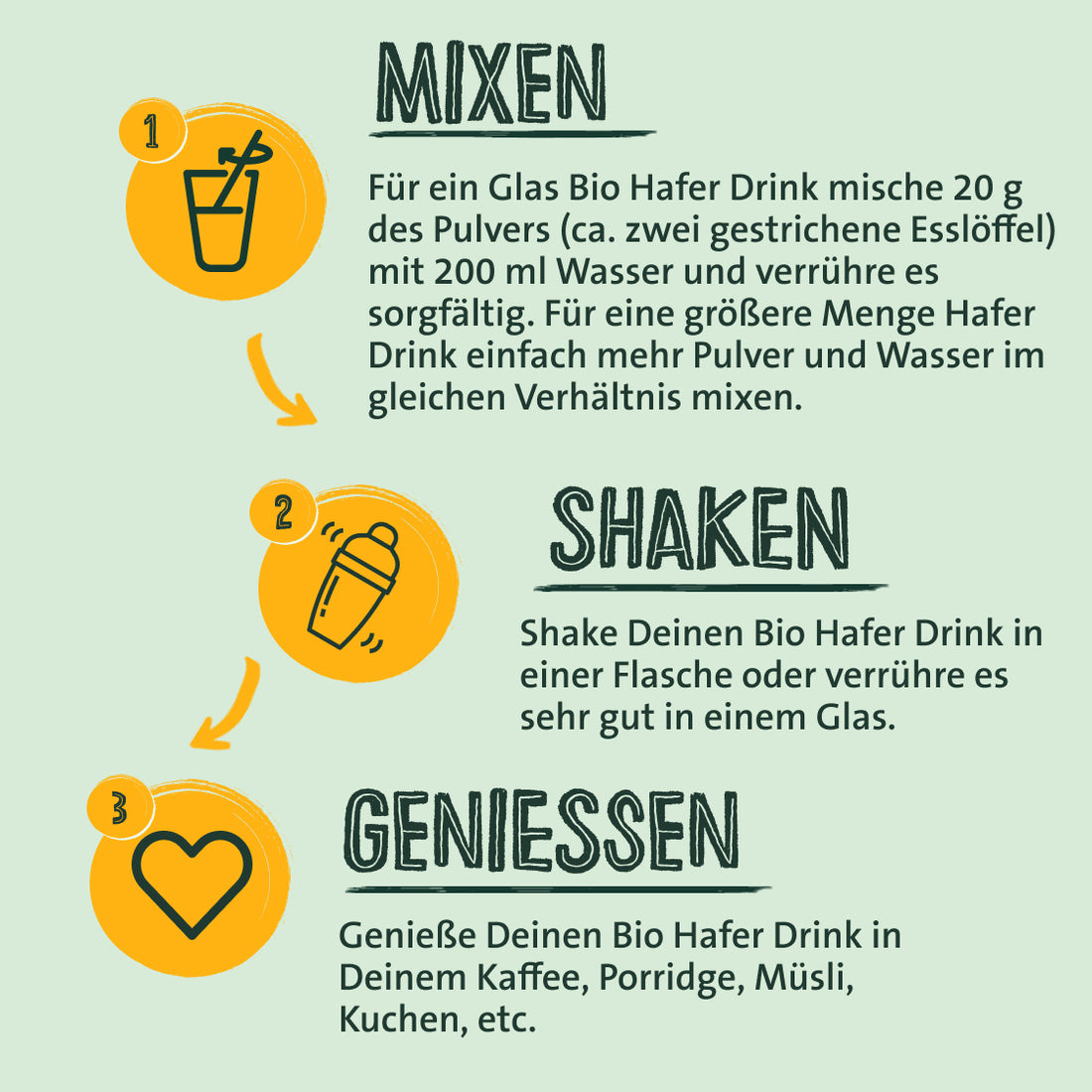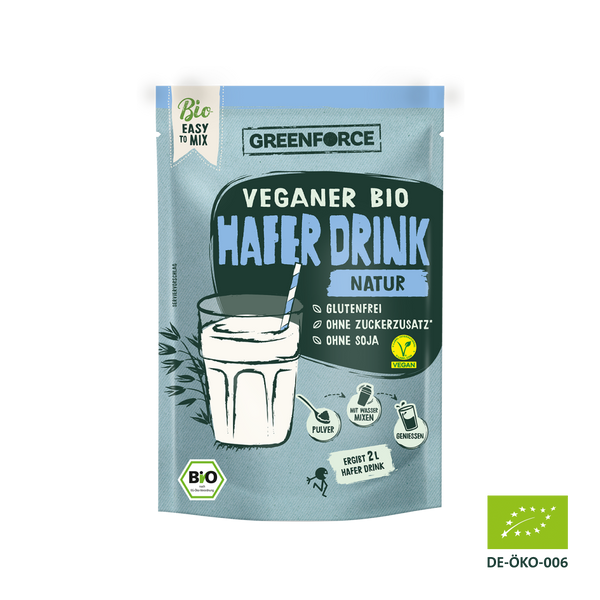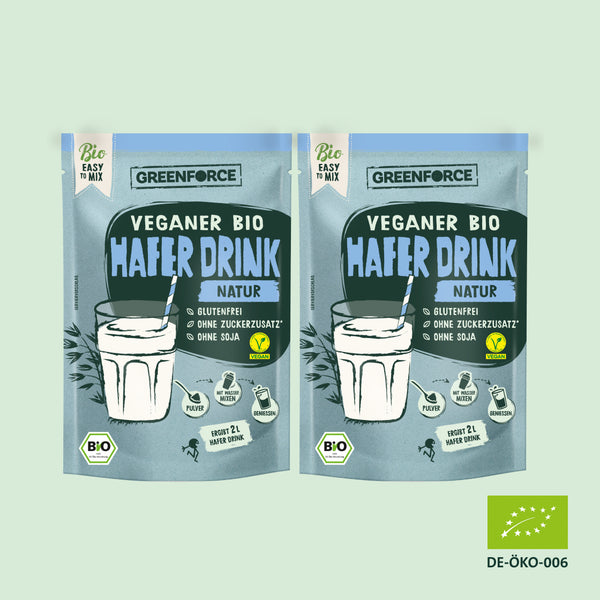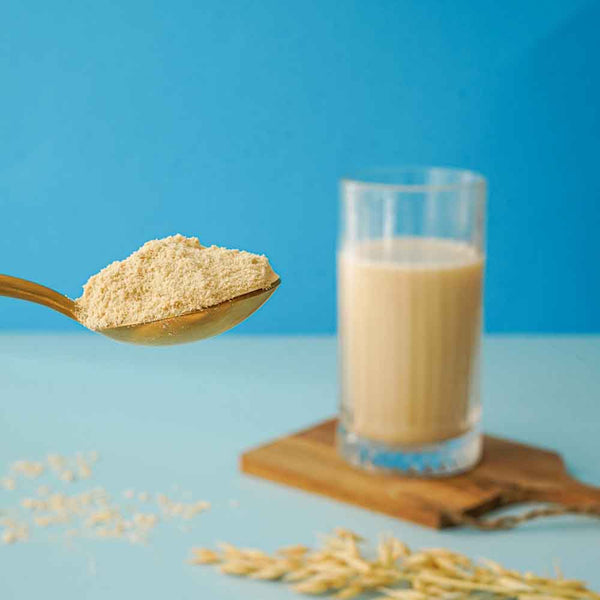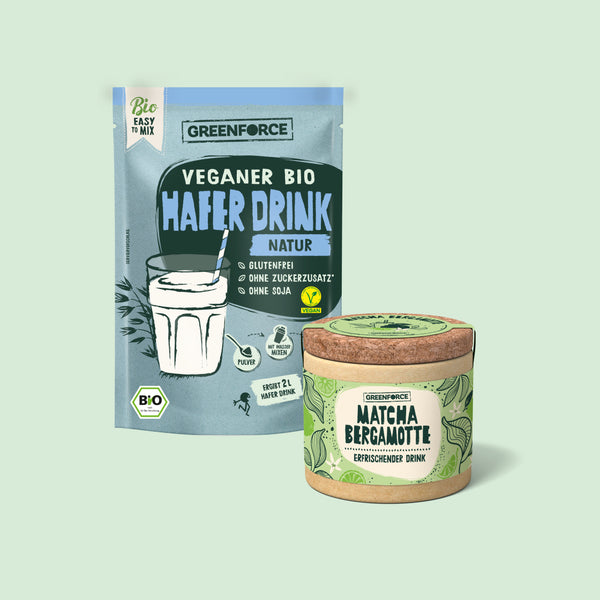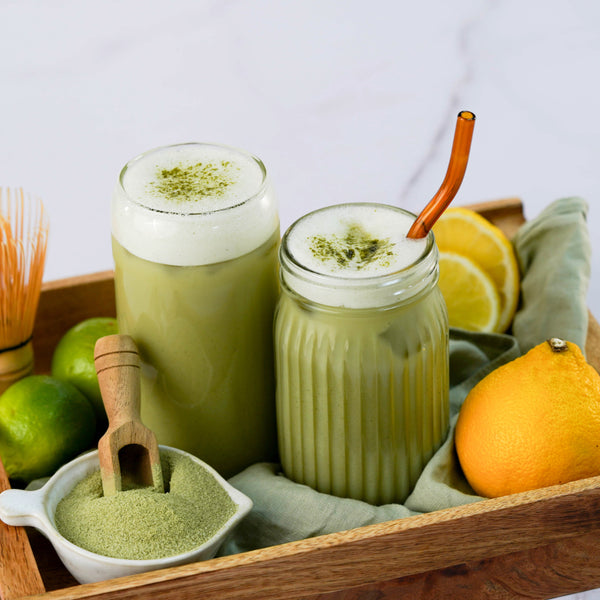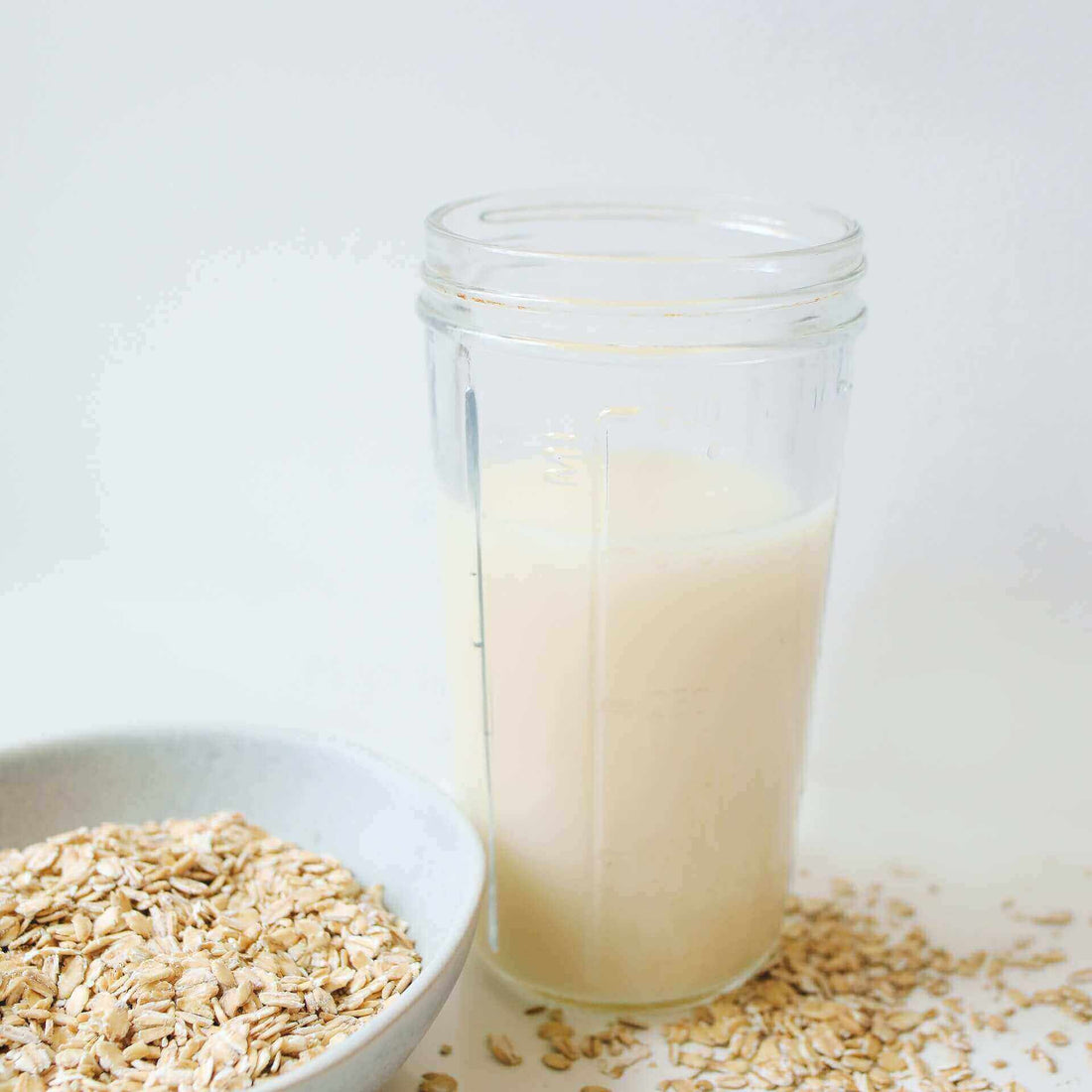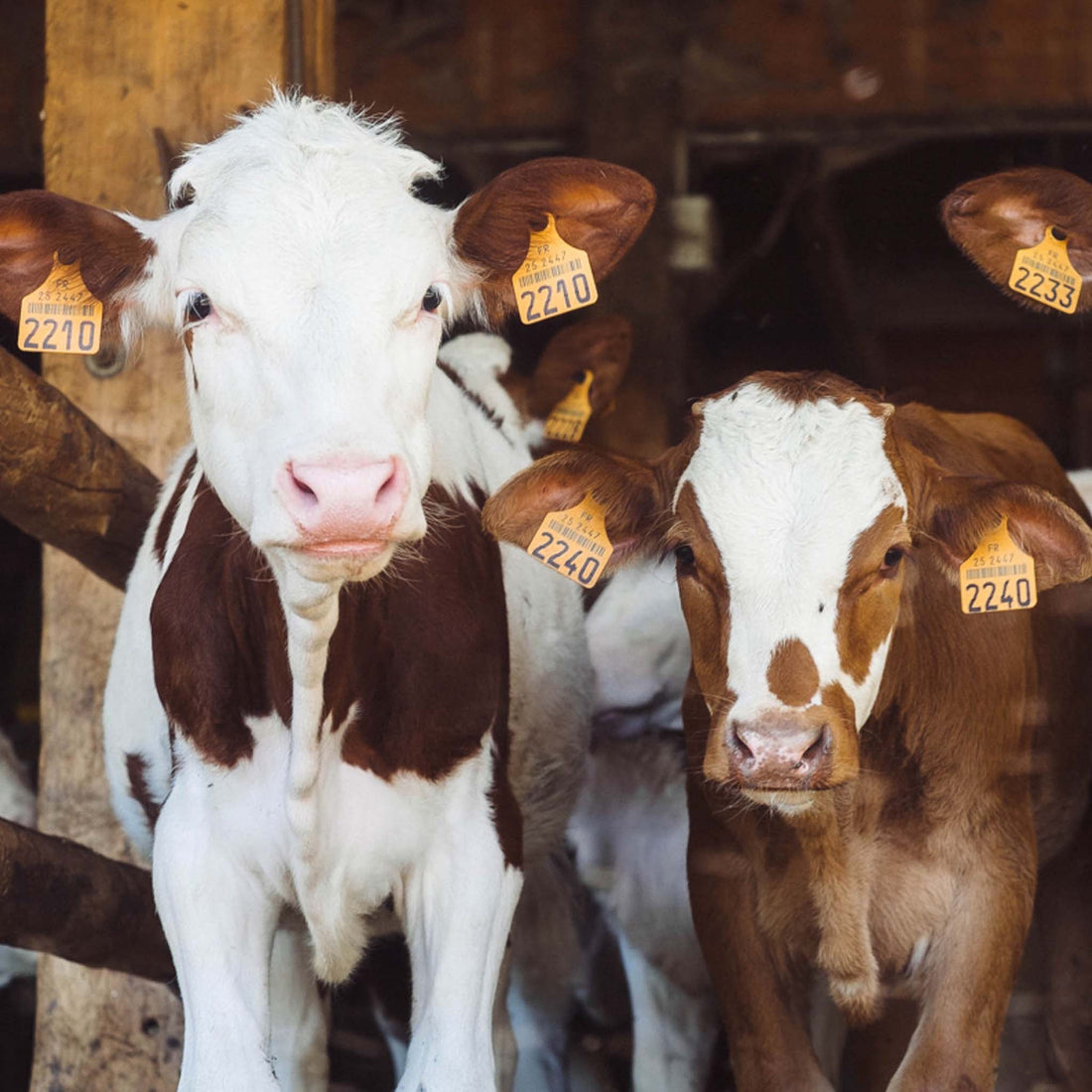Getting constipated from milk? Symptoms & nutritional tips
Theresa Aicher
10/08/23
Reading time: 8 minutes
There is hardly a person who has not struggled with constipation at some point in their life. The technical term for this is constipation. This is often triggered, for example, by an incorrect diet or a lack of exercise. Such constipation often disappears relatively quickly.
Some people suffer from such digestive problems for longer than three months. In these cases, specialists speak of chronic constipation. The symptoms of this type of digestive problem seem comparatively harmless, but depending on the symptoms, they sometimes severely limit the quality of life and everyday life.
Milk constipation: These symptoms indicate constipation
The following symptoms occur if you cannot tolerate cow's milk:
- stomach pain
- unpleasant pressure in the upper abdomen
- Flatulence
- Feeling of fullness
- low stool frequency (only once or twice a week)
- hard stools (often requiring strong and often painful straining)
- Feeling of incomplete emptying and rectal blockage
Constipation is not considered an independent disease, but is classified as a symptom of inconsistencies in the organism. It describes a subjective feeling that the stool can be excreted at too low a frequency, with the wrong consistency, in insufficient quantities and only with discomfort .
Improper nutrition as a crucial risk factor
Diet plays an important role in the causes of constipation. For example, if there are too few whole grain products, legumes, vegetables, fruits and seeds on the menu, you are not consuming enough fiber. However, these are extremely important because of their driving effect on the digestive process and the regular excretion of stool.
Too little fluid intake is also a risk factor for the development of constipation. Institutions such as the World Health Organization (WHO) and the Federal Ministry of Health (BMG) recommend drinking at least 1.5 to two liters per day.
Drinking milk causes constipation - lactose intolerance in focus
However, this does not mean classic cow's milk. Quite the opposite: This type of milk and the milk products made from it are in many cases responsible for constipation, diarrhea and other gastrointestinal problems.
Milk consumption, like an unhealthy diet, does not necessarily lead to constipation, but the risk is much higher compared to soy or plant milk, for example. This is not least because many people are lactose intolerant.
What is lactose intolerance and what does it cause?
As the name makes clear, lactose intolerance is an intolerance to lactose (milk sugar). Such an intolerance always occurs when the body does not produce enough lactase. As a digestive enzyme, lactase is responsible for breaking down milk sugar or lactose into its components.
This is an essential process in making dairy products digestible. If there is a lack of lactase, this process does not work. In addition to digestive problems, lactose intolerance is also associated with fatigue.
Cow's milk can irritate the digestive system to varying degrees
It is therefore not unusual for lactose-intolerant people to have gastrointestinal problems as a result of consuming dairy products or cow's milk. However, those affected suffer to different degrees, especially from diarrhea and only rarely from constipation. In addition to lactose intolerance, there is another problem with this topic. According to various study results, cow's milk and dairy products can irritate the digestive tract to varying degrees.
Doctors and scientists attribute the cause of this to a lack of the very enzymes that are primarily responsible for breaking down lactose in the organism. Statistically speaking, a large number of people are affected by this deficiency.
The result of this : After drinking cow's milk or dairy products, you experience flatulence and symptoms, such as often severe constipation. Typical of this is, among other things, unpleasant pressure in the upper abdomen.

What are enzymes and how do they work?
The enzymes mentioned are complex molecules that sustainably accelerate biochemical reactions in the human organism in the form of various metabolic processes. They therefore have the function of a biocatalyst. Enzymes are proteins made up of amino acids. Your body uses many different enzymes that catalyze a wide variety of reactions. This is especially the case in the digestive tract.
Cow's milk allergy in babies - ideally switch to milk substitute products
Digestive problems in infants caused by the consumption of cow's milk are also widespread.
Such a cow's milk allergy in a baby manifests itself, for example, through these allergic reactions:
- Abdominal pain and bloating
- constipation
- Diarrhea
- Rashes and itching
- Eczema and cradle cap
- Spitting, reflux and belching
- Runny nose, chronic cough or bronchitis
In the worst case, particularly severe allergic reactions can occur. These are triggered by the so-called anaphylactic reaction, which leads to a collapse of the circulatory system. To protect your baby from a cow's milk allergy in the first place, you can simply replace the milk .
Plant milk is an excellent vegan alternative from the age of around one year. However, you should stay away from soy milk. Soy can cause other types of digestive problems. Pediatricians and the Federal Institute for Risk Assessment advise against giving babies and small children soy milk. Due to the isoflavones (secondary plant substances) they contain, they can have a negative impact on the hormonal balance.
However, there are numerous milk substitutes that you can use.

Suffering from constipation due to milk - an overview of the study situation
Over the past 40 years, numerous studies have looked intensively into the effects of types of milk and dairy products on digestion and the entire gastrointestinal tract.
Below you will find an overview of the most relevant study results:
- Scientific study from 2006
In a 2006 study, Italian scientists and doctors demonstrated that the cause of milk-related constipation in children is probably milk protein intolerance. If the affected children subsequently avoid dairy products, the study results showed a fundamental reduction in constipation and other gastrointestinal problems.
- Literature study from 2008
A large number of studies came to the same or at least similar results. This is represented by a literature study first published in 2008 under the leadership of lecturer in nutrition and dietetics Elesa Crowley (University of Newcastle; Australia).
Accordingly, the results of a total of 125 studies indicate that cow's milk and dairy products are responsible for the occurrence of constipation symptoms in children between seven days and 15 years of age.
As soon as the children taking part in the various studies stopped eating traditional cow's milk and the dairy products made from it, their constipation symptoms disappeared. Constipation also occurred much less frequently in the children afterwards.
- Clinical study from 2013
Elesa Crowley published another study in 2013 on the connection between dairy products , digestion and constipation. This time it was a clinical study in which children between the ages of one and twelve years suffering from chronic constipation symptoms took part. The researchers and scientists involved found that switching from cow's milk to soy milk caused constipation to subside in most children.
- Scientific study from 2009
In 2009, the extent to which people in adulthood have the ability to easily digest cow's milk and dairy products was the subject of a study by the Johannes Gutenberg University Mainz (JGU) and the University College London (UCL). Accordingly, the compatibility is due to a gene mutation that arose around 7,500 years ago in southeastern Europe.
The study also shows that northern Europeans in particular tolerate dairy products well. Only around ten percent of Northern Europeans suffer from constipation or other digestive problems after consuming dairy products and pure milk. Towards the south, this compatibility is expected to decrease further and further. According to the study results, an average of around 40 percent of people in Central Europe already have problems digesting dairy products.
Two thirds of people in southern Europe are affected. Even in Asia, the majority of people cannot digest milk and products based on it without symptoms.
The solution: replace milk with milk substitutes
But whether babies, toddlers, teenagers or adults - it always depends on your own disposition whether digestion also plays a role when drinking cow's milk and milk-based products. Some people are more prone to constipation than other people.
However, if you or your family find that drinking cow's milk causes constipation or other digestive problems, you need to find an alternative to cow's milk. With plant milk you are on the safe side quickly and sustainably. Greenforce in particular offers you a wide range of products and options.
Make your own plant milk - your top alternative to cow's milk from Greenforce
In our webshop you will find the best alternatives to conventional cow's milk and classic dairy products. Regardless of the product, we always attach great importance to vegan and easily digestible ingredients. Because many supposedly healthy ingredients can cause unwanted side effects. A typical example of this is too high a dosage of protein, which can cause bloating.
This won't happen to you with our plant milk products made from carefully selected ingredients. Even if you suffer from lactose intolerance, plant milk is a first-class alternative. Products such as oat milk or almond milk ensure that lactose intolerance does not cause fatigue or digestive problems. You can easily make our plant milk yourself .
And the best thing about it : you can easily make your own plant milk. You can do this, for example, with oat milk in powder form. Or you can choose organic Vegurts instead of conventional dairy products such as yoghurts and quark dishes. Of course, always soy-free, so soy cannot cause digestive problems. You can also rely on a balanced protein content at all times. This is important because consuming large amounts of protein can be responsible for bloating .








